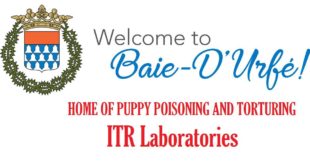There is a Spanish proverb that says, “Where there is love, there is pain.” Compassion fatigue is an emotional and spiritual fatigue or exhaustion that takes over a person and causes a decline in his or her ability to experience joy or to feel and care for others. People helping out human or nonhuman animals can experience this secondary traumatic stress disorder.
The people involved in animal rescue, fostering, veterinary physicians and technicians can become overwhelmed with the everyday stress of trying to make a difference for one animal out of the thousands of animals that need help. They go through each day facing the ignorance of certain people and yet still need to be kind when educating and promoting the cause of helping animals.
The emotional ups and downs of caring for and helping animals takes a hard hit on the body and soul of the heroes that give 100% for making a difference for animals.
According to the North Carolina Voters for Animal Welfare (NCAW), compassion fatigue is a type of burnout. It is irrelevant if the person is a paid professional, a volunteer, does animal rescue work, sheltering work, animal control work, political advocacy work, employee, supervisor, administrator, board member etc… their compassion for animals can drain them emotionally.
Compassion Fatigue Symptoms
- Free-floating anger or misplaced anger
- Increased irritability
- Substance abuse, including food, alcohol, drugs
- Blaming “them” (whoever they are)
- Chronic tardiness
- Depression, hopelessness
- Obsessive worry that they are not doing enough; irrationally high self-expectation
- Diminished joy toward persons/activities that used to bring happiness
- Diminished sense of personal accomplishment
- Low self-esteem
- Workaholism
- Diminished balance between empathy and objectivity
- Hypertension
- Exhaustion (physical and emotional)
- Frequent headaches
- Gastrointestinal complaints
- Insomnia, sleep disturbances
- Frequent vague illnesses
The Compassion Fatigue Awareness Program (CFAP) provides information and help in order for people not to feel alone and seek a solution for their pain. Denial is one of the most detrimental symptoms of compassion fatigue and it can easily hurt the assessment of the fatigue or stress the person is experiencing. CFAP provides an online self-test in order for people to determine their level of compassion fatigue. They provide Animal Caregiver resources on the site. The ones given are mainly located in the United States. But, there are two clinics in Canada listed as resources for general information about compassion fatigue; one is located in Kingston, Ontario and another clinic in Burnaby, British Columbia.
The importance of recognizing the symptoms and looking for help is crucial for people to continue on in their compassionate work. Animals and society depend on those that give their whole heart and passion to their important work.
Please watch the following video from The Humane Society of the United States regarding compassion fatigue.
 Montreal Dog Blog Montreal's Online Dog Park
Montreal Dog Blog Montreal's Online Dog Park




